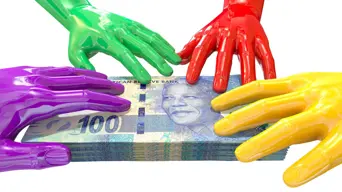Study reveals SAns have growing distrust that corruption is adequately addressed
People surveyed in a new study on corruption perception have doubts about the government’s ability to fight corruption, with a third of them having np confidence at all in its anti-corruption policies.

Picture: Albund/123rf.com
CAPE TOWN - A new study on corruption perceptions has revealed a growing distrust from South Africans that graft is being adequately addressed.
With the president, the former National Assembly speaker, and the former health minister all implicated in corruption scandals during the sixth administration, those surveyed have doubts about the government’s ability to fight corruption.
ALSO READ:
- South Africans concerned about corruption likely to support an opposition party – study
- SA records lowest ever score on global Corruption Perception Index
A third of the people surveyed also have no confidence at all in government’s anti-corruption policies.
With an election approaching, Corruption Watch has found the average citizen has not only lost trust in politicians, but also in State institutions.
These include Parliament, The Presidency, law enforcement agencies and Chapter 9 institutions.
“All of these scandals have played a very great role in lowering the trust levels members of the public have of these institutions,” said Corruption Watch’s Mzwandile Banjathwa.
Eighty-one percent of respondents believe government’s efforts are particularly inadequate in stemming graft in the provision of basic services.
But Corruption Watch has also found over half of respondents displayed little understanding of anti-corruption policies.
“This speaks to a need to educate and raise awareness about these various pieces of legislation.”
However, respondents were not totally blameless in perpetuating corruption, with several hundred of them admitting to offering or paying a bribe.